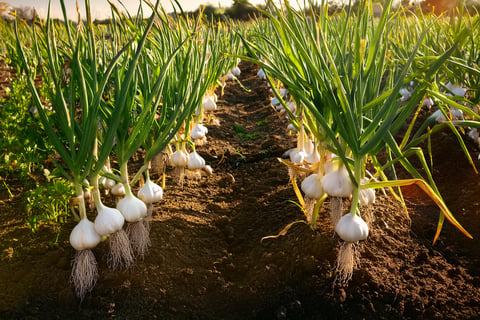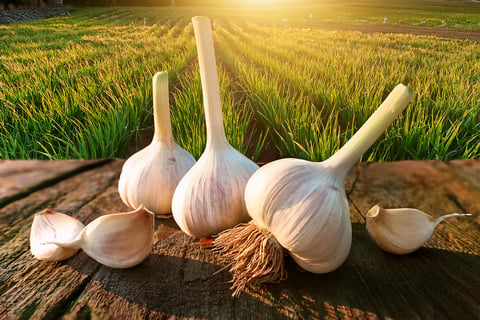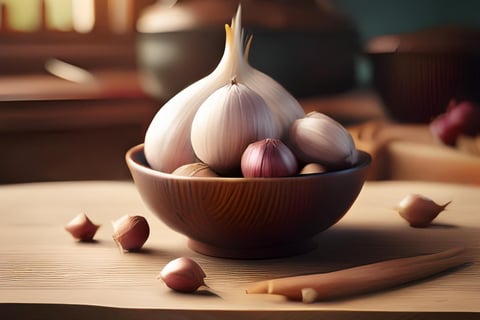Garlic
The Power of Garlic
Garlic is a versatile plant renowned for its culinary and medicinal properties. Packed with bioactive compounds such as allicin, it not only enhances flavors in a wide variety of dishes but also contributes to overall health and well-being.
History and Origins
Garlic has been cultivated for thousands of years, with its origins traced to Central Asia. It has played a vital role in ancient civilizations, from Egyptian rituals to Greek and Roman medicine, symbolizing strength, health, and protection.
A powerhouse of nutrients, garlic is rich in vitamins C and B6, manganese, selenium, and antioxidants. Despite its small size, it delivers significant health benefits, including boosting the immune system and supporting cardiovascular health.
Nutritional Value
Garlic is known for its anti-inflammatory, antibacterial, and antiviral properties. Regular consumption may help lower blood pressure, reduce cholesterol levels, and enhance immune function, making it a natural remedy in preventive health care.
Health Benefits
Culinary Uses
Garlic is a staple ingredient in cuisines around the world. Whether roasted, sautéed, minced, or used raw, its bold and aromatic flavor transforms dishes, from pasta sauces and soups to marinades and salads.
Agricultural Cultivation
Garlic thrives in a wide range of climates and requires well-drained soil and ample sunlight for optimal growth. Its farming involves careful planting, harvesting, and curing processes to maintain its quality and flavor.
Beyond its practical uses, garlic holds symbolic value in various cultures. It has been used as a talisman against evil spirits, a token of prosperity, and an essential element in traditional medicine and folklore worldwide.
Cultural Significance







Grains for Wellness
Promote your family's health with the essence of grains, turning your home into a sanctuary of well-being.

